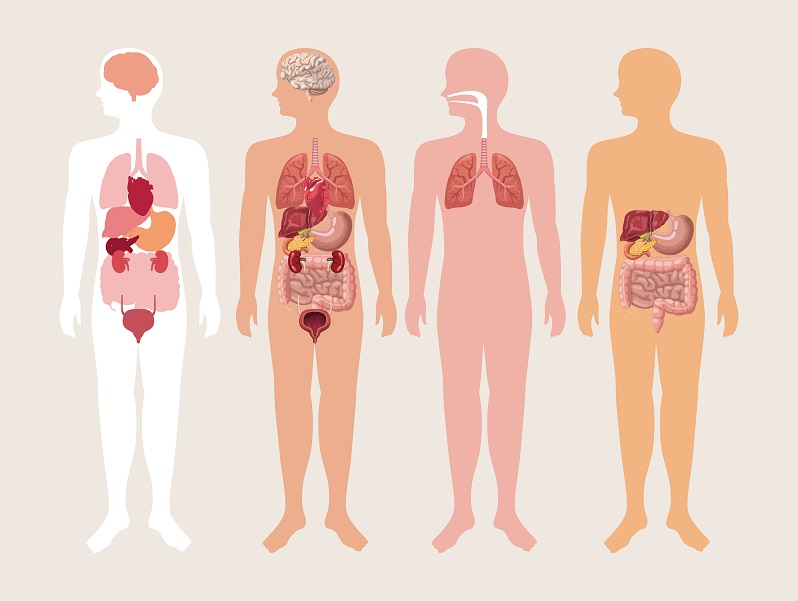The human body is a natural marvel. Each organ has a distinct function that helps us live and stay healthy. But do you know what the biggest organs are? Let’s work it out together and discover some fascinating facts that will undoubtedly surprise you!
#1. Skin – our #1 largest organ
Yes, the skin is the largest organ of the human body. It covers our entire body, acting as a barrier, protecting us from infections, ultraviolet radiation and mechanical damage. If you could remove the skin and lay it out, it would take up an area of about 1.5-2 square meters. This is about the size of a small bed!
Interesting fact: every month we lose about 500 million skin cells, which are replaced by new ones. This regeneration process makes our skin incredibly resilient, but at the same time vulnerable to environmental factors.
#2. Brain – the control center of the body and intellect
Our brain is the main command post that controls all processes in the body. It weighs about 1.3-1.4 kilograms, and although it is only about 2% of body weight, the brain consumes about 20% of all energy! It is the most “gluttonous” organ.
In addition to controlling movements, breathing and heartbeat, the brain is also responsible for our ability to think, learn and solve problems. IQ tests like the one from Cerebrum IQ were created to assess the level of a person’s cognitive abilities. However, it is worth noting that IQ is only one way to measure intelligence, and the test result itself doesn’t always indicate all the abilities of the brain. There are many examples of people with low IQ who have achieved incredible success thanks to their creative or social skills.
Fun fact: some scientists believe that our brain is more active during sleep than when awake! It is at night that the processes of information processing and memories occur.

#3. Liver – the body’s chemical laboratory
The liver is the largest internal organ. It weighs about 1.5 kg and performs more than 500 different functions. Among the liver’s main functions are filtering toxins, storing vitamins and minerals, and producing bile, which helps digest food.
A fact that may surprise you: the liver is one of the few organs that can self-repair. Even if up to 75% of its mass is removed, it can fully recover over time! That is why part of the liver can be transplanted to another person without harming the donor.
#4. Lungs – a parallel world of breathing
The lungs are the organ responsible for saturating the blood with oxygen and removing carbon dioxide. If all the alveoli (the small bubbles inside the lungs where gas exchange occurs) could be straightened out, their area would take up about 70 square meters. That is more than the area of a tennis court!
Another fact: our lungs can process about 8 liters of air per minute at rest. With physical activity, this figure can increase several times.
#5. Heart – a powerful pumping station
The heart is not the largest in size, but it has colossal power. This is the organ that pumps blood throughout the body, delivering oxygen and nutrients to all cells. In one day, the heart beats about 100,000 times and pumps about 7,500 liters of blood.
Interestingly, in some people, for example, athletes, the heart can increase in size due to high loads. This phenomenon is called “athlete’s heart”, and although it may sound scary, for most it is a completely normal phenomenon.
#6. Intestine – a long path of digestion
The intestine is an organ that, it would seem, cannot be so large. However, its total length in an adult is about 7-8 meters! Basically, it is the small intestine that absorbs nutrients, and the large intestine completes the digestion process and removes waste.
Fun fact: if our intestines were not folded into neat loops inside the abdominal cavity, their length would allow them to wrap around the human body several times!
Final Words
Our body is an amazing system, where each organ plays its role. The largest organs, be it skin, brain or liver, amaze not only with their size, but also with their capabilities. These mechanisms work harmoniously, and sometimes we do not even think about what an incredible “machine” we control every day. So take care of your body – it really deserves attention and respect!